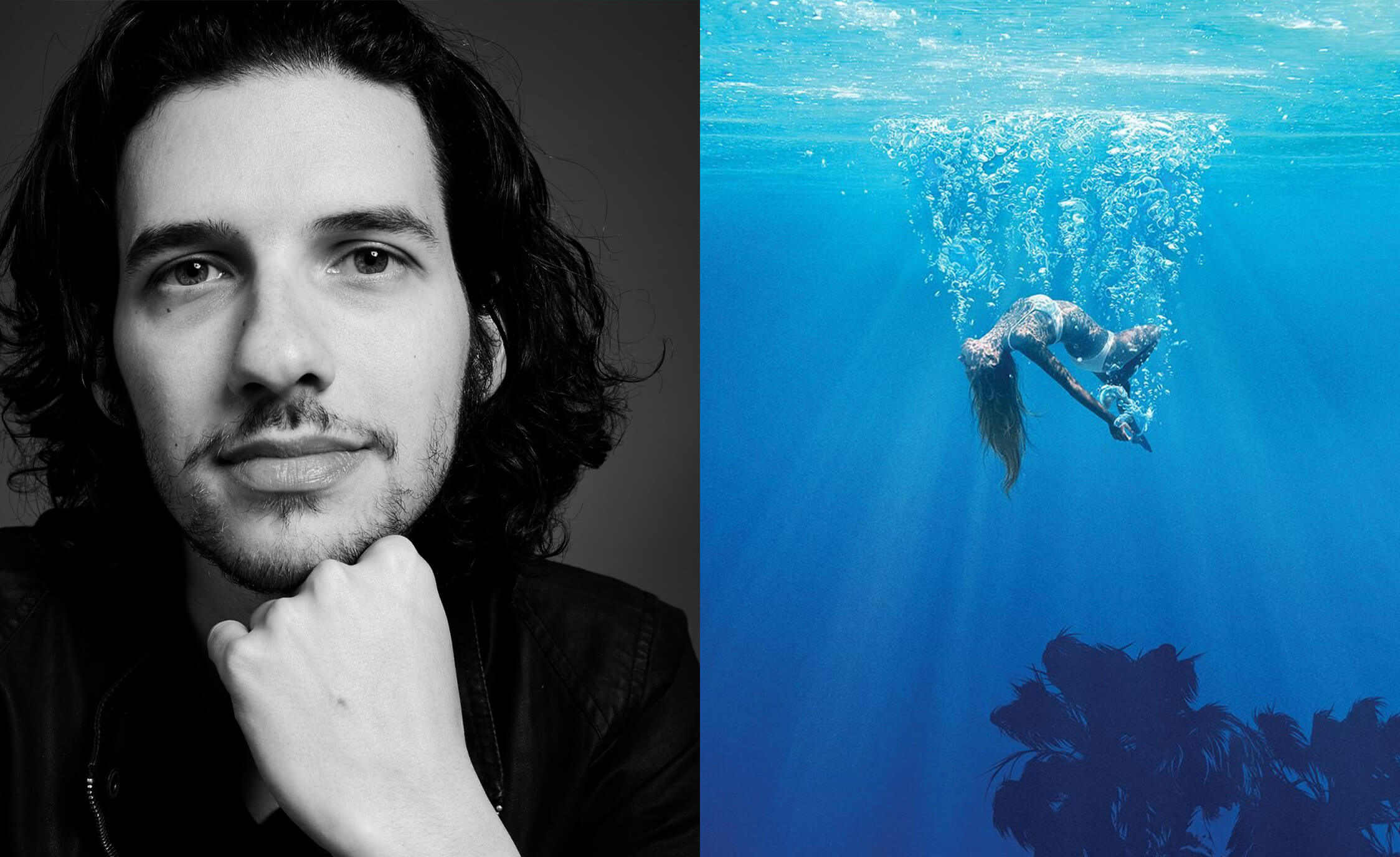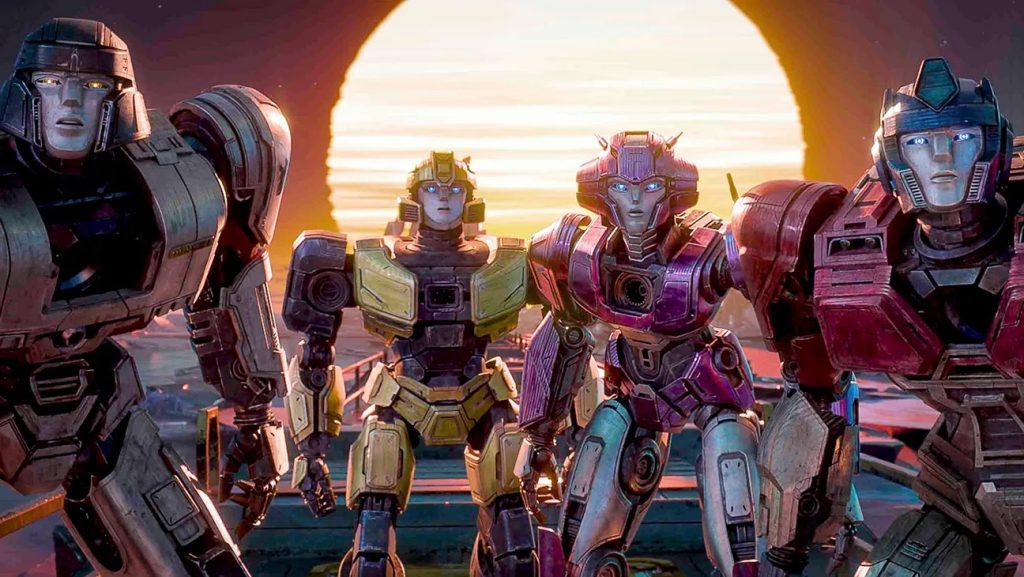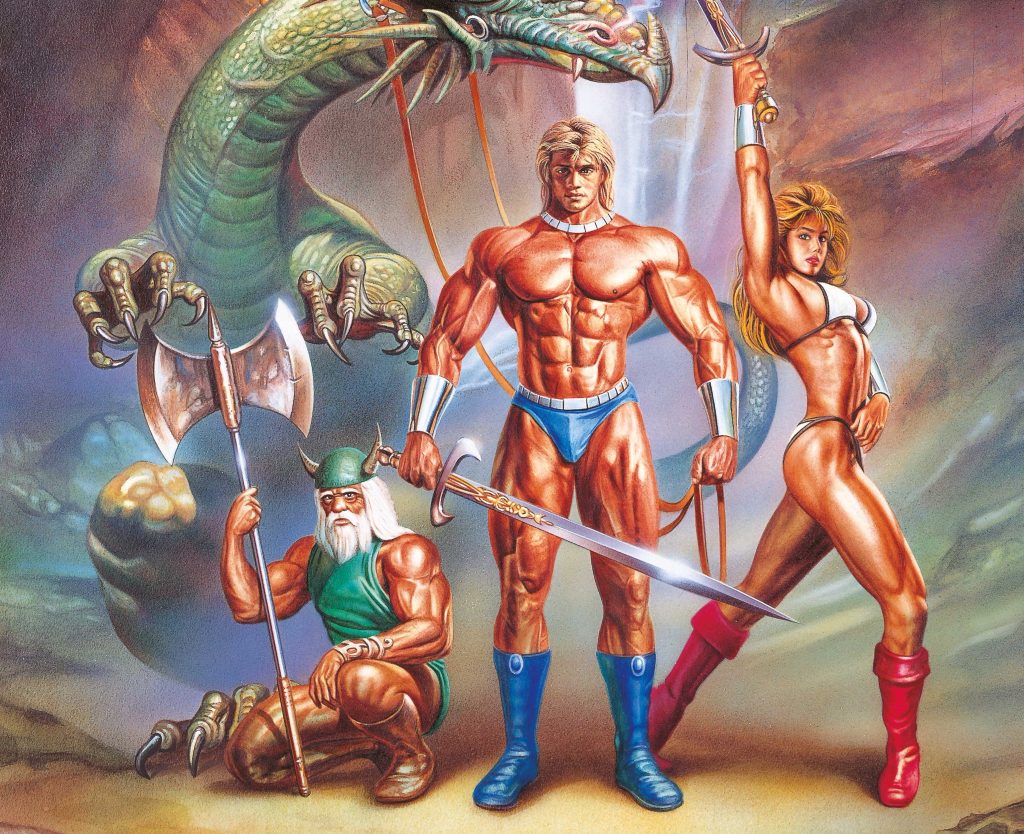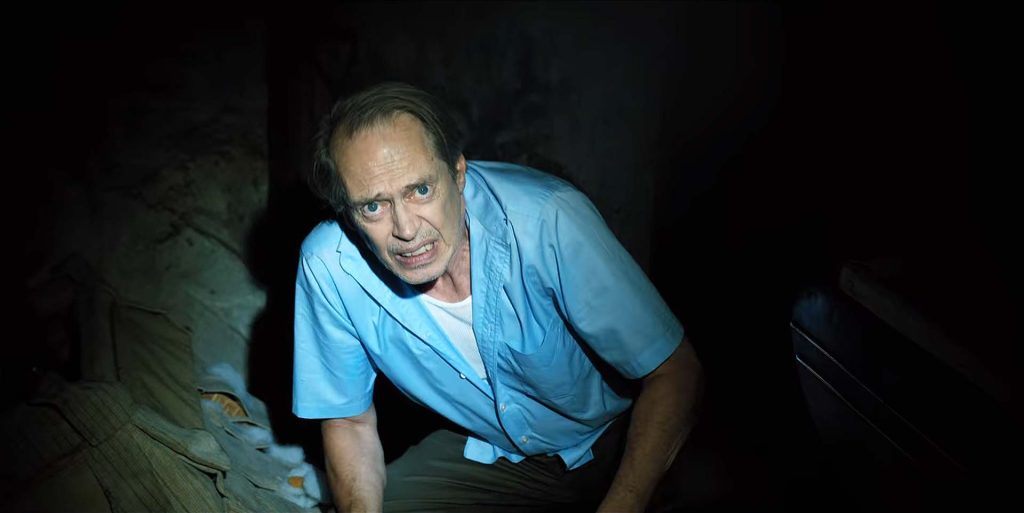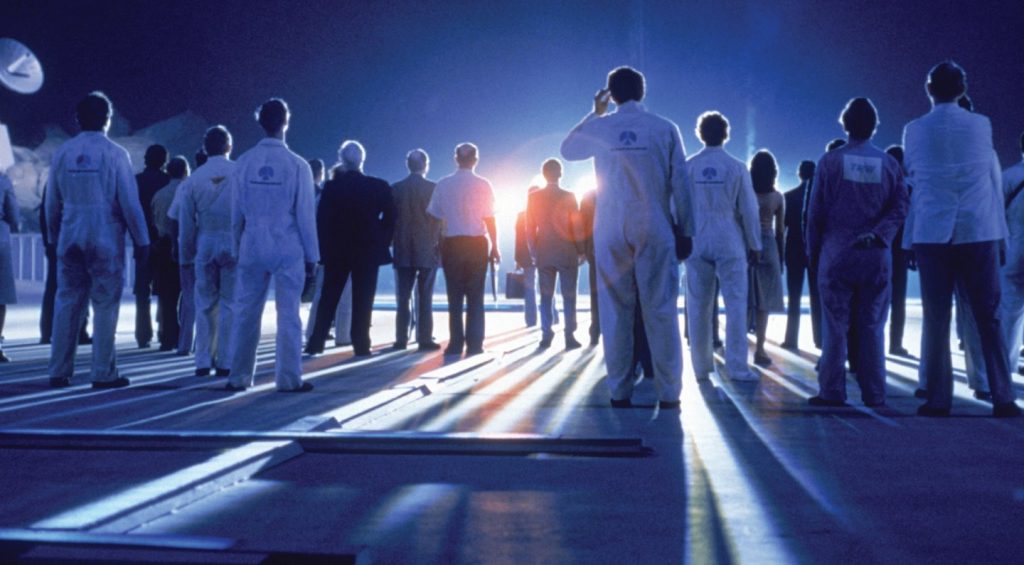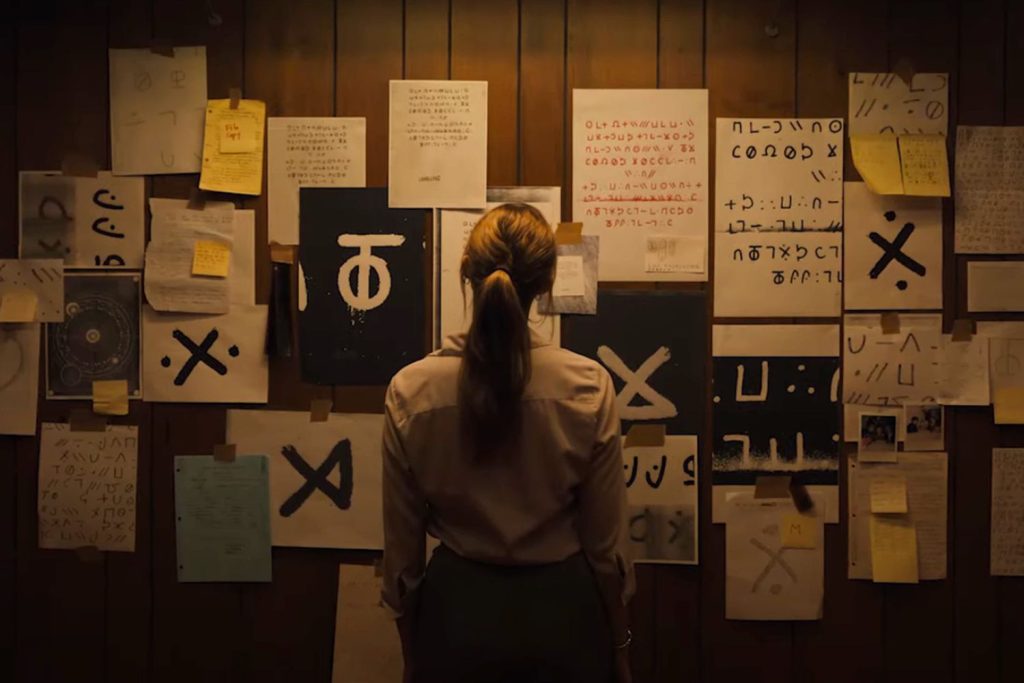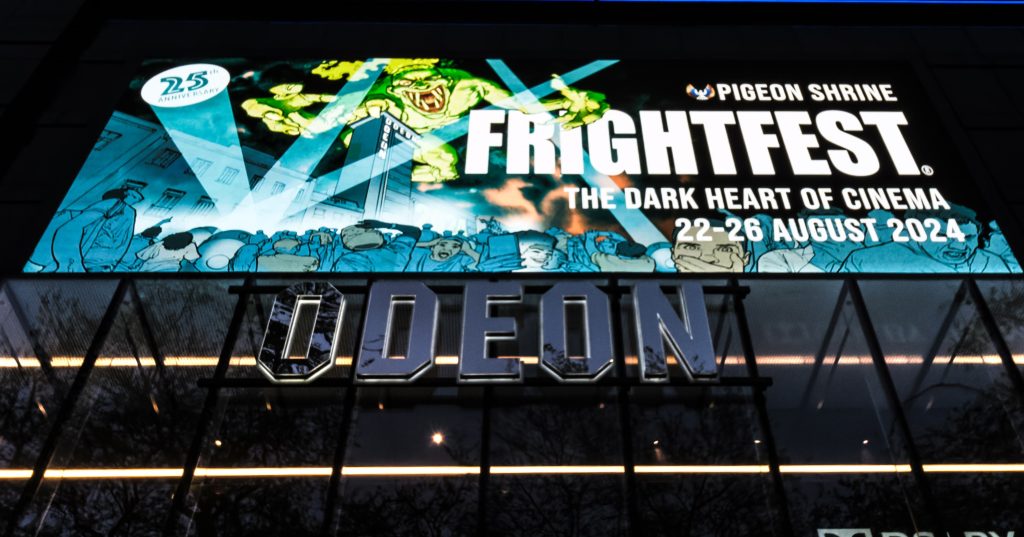The composer Disasterpeace – also known by his given name, Richard Vreeland – had been making scores for video games such as the indie hit, Fez, for several years when he was tapped by director David Robert Mitchell to score the 2014 horror film It Follows. The film and score were almost inexorably linked in reviews at the time, and much like John Carpenter’s music for the original Halloween, it became instantly iconic. Disasterpeace’s debut film score was an instant success.
In the time since, Vreeland has scored several more video games – most notably, Hyper Light Drifter – but recently returned to film scoring for Mitchell’s latest, a neo-noir starring Andrew Garfield, entitled Under the Silver Lake. The film’s both an homage to the genre, as well as coming up alongside more recent examples like Brick or Kiss Kiss Bang Bang with a modern sense of style and slyly subversive humor.
Unlike Vreeland’s previous work, the score isn’t chiptune or synth-based, but instead features a full orchestra, and would fit in perfectly alongside classic noir scores of the ’40s and ’50s. This is a Disasterpeace composition of another beast entirely, and we were excited to speak with Vreeland all about it.
STARBURST: How early in the process did you join Under the Silver Lake?
Disaterpeace: So, I was involved pretty early. I read the script before we started shooting. This movie has a bunch of music in it: not just score, but a lot of music on-screen, and a lot of the scenes where the actors are using music, playing music, at a concert – stuff like that. There was a lot of pre-production music that I had to write and help prepare, so I got involved in August of 2016, which was right around the time that they started shooting, so I was involved for over a year. It was a pretty long project.
Given the preponderance of ’90s music, a band as characters, and the songwriter, what challenges does all of that other music in the film present to your composition?
It’s interesting, because it definitely informed the score, but also, it had to be its own thing. The music of the world is going to have a different language to it than the score, which is sort of more of a commentary. What was fun about that was figuring out interesting ways to cross streams. One example is Turning Teeth, which is sort of the song of the summer or whatever, and it’s pretty much everywhere in the movie. It works its way pretty early into the score as sort of a motif.
There’s definitely quite a bit of that, even in circumstances where it’s not necessarily music that I wrote, but I was definitely thinking about. Things like Nirvana, where I’m just sort of thinking, ‘how can I weave this sort of feeling of a sort of early ’90s grungy period, this sort of touchstone for the character [of Sam]? If at all, is there a place for that in the score, even if the score is trying to do a very different thing?’
There’s a little bit of that that went into the thought process, and there are other examples that are like that: sort of the way that the film plays with the idea of being a kid and playing video games and discovering secrets and stuff – that sort of find its way into the score in different ways.
We definitely noticed the Legend of Zelda homage in the score at one point, where there’s that little chime of achievement…
Yeah, there’s a couple of scenes like that. There’s sort of when he discovers the underground tomb and when he’s going through the Nintendo Power. That’s just something that happened naturally when I was scoring that sequence. When you’re spending that much time with it – and even with first watch – there’s a sort of absurdity to it, but when you’re really inhabiting it, it becomes really obvious how ridiculous the whole thing, so it certainly presents itself as an opportunity to do something that’s a bit flippant and a bit comical – and also, fun, just playing with the boundaries of what’s real and what’s not. What’s underscore and what’s sort of breaking the fourth wall a little bit? Just being playful in that sort of way.
It’s definitely something that has been a hallmark of noir films since the beginning. If you look at them a little too closely, the conspiracies and crisscrossing paths can get to be a bit much. Were there any composers or scores you looked to when scoring Under the Silver Lake? The mix of noir and a sort of screwball comedy must’ve made for some interesting tonal shifts.
For sure. It was definitely a real challenge. On the reference side: I didn’t really go out and do a lot of just standalone listening, but at the beginning of the project, I had a bunch of different ideas for what the movie could sound like, and I was pretty far off from some of the intentions or hopes that David had for the score.
So, he recommended a bunch of movies for me to watch, to just get a better sense of the genre and what came before and how to bridge that gap. I went and watched Citizen Kane and Vertigo and Taxi Driver and Blue Velvet, and that was pretty much it. I watched each of those once and I just needed a little bit of reference for myself, because coming to the project, I basically had very little knowledge or familiarity with noir movies. Just seeing a couple different things that had a sort of commonality, started helping me develop a sort of language for the movie.
After we watched the film a couple of times, it seems like Under the Silver Lake operates in a modern time period, yet something apart from our actual reality. Was that appealing to you?
I think that’s sort of a thematic element that David has been developing. Certainly, It Follows was that way and I think this film is like that, as well. It’s interesting, because while this film has that anachronistic feel at times, it’s also meant to be a period movie, in a certain way. It’s meant to be set a certain time, but it’s just sort of the way that David paints this picture where – what’s real and what’s not real, it can be hard to tell.
His passion for films and references and the passions that he brings are so vivid and diverse that there’s almost a feeling that you’re a part of something that’s more than a particular point in time. It’s something that’s more connected to a bunch of different points along the way, as far as the history of movies.
Now that you’ve made a couple of movies with David Robert Mitchell, have you developed a shorthand to communicate what you’re both aiming for – is it easier or harder, at this point?
[Laughs] I think it’ a little bit of both. Working with someone multiple times, successfully, you definitely build a communications style, and a rapport and a trust with one another. I think there’s also more of an openness to be honest and to really push for your desires, and that can make things a little more adversarial at times, but ultimately, I think David and I have a ton of respect for each other, and I think we’re really proud of the work we’ve done together. We like each other, personally, so any of the challenges and hardships that come up as part of that process are easy to look past. Especially when you can look back and say, ‘we made something pretty amazing,’ there’s something to be proud of.
Whose idea was it to do a full orchestral score, then?
I think we both had the intention of working with an orchestra this time, but I think that we had somewhat different ideas about the specifics of that. I had an idea that it would be more of a melting pot, sort of grab-bag of different styles that would be even more video game stuff, and acoustic guitars. I think, David – his instincts were more towards a primarily classic film, orchestral kind of sound. Once we started playing with those ideas, I knew he had a really solid intuition about that idea, and it was the way to go.
We still knew that we wanted to pepper the score with other kinds of sounds and to have fun with it – to really sort of bring a breadth of ideas to the score. The way that the script brings a lot of ideas to the table, we really wanted to mirror that.
Disasterpeace’s score for Under the Silver Lake is out on Friday, April 19th via Milan Records.

